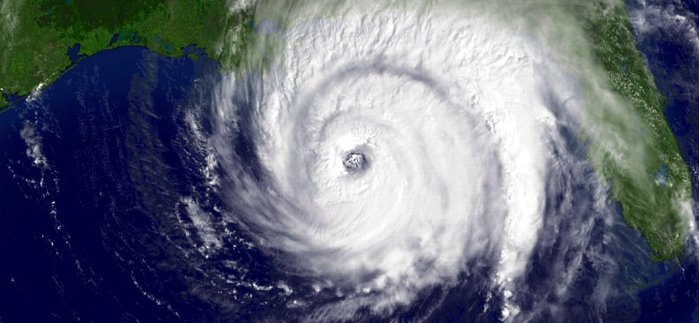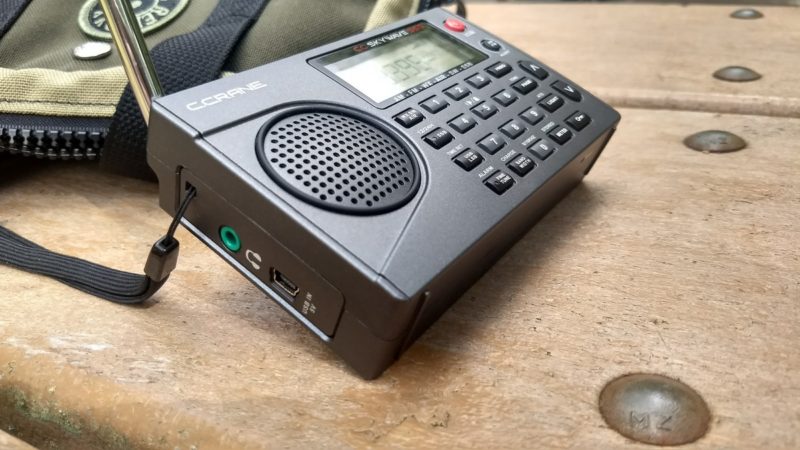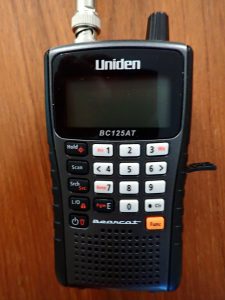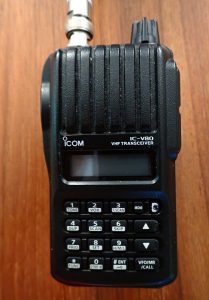Murphy’s Legislation: If something can go flawed, it should.
1st corollary: Even when something can’t go flawed, it nonetheless will.
2nd corollary: It can go flawed within the worst attainable place on the worst attainable time.
Most devastating corollary: Murphy was an optimist.
“It’s powerful to make predictions, particularly in regards to the future.” – Yogi Berra
The Higher Half thinks I’m sick, and possibly she is correct, however I’m unrepentant: I like catastrophe films and books. True tales are higher than fiction, however I like each, and I’m interested in how folks, actual or imagined, get via no matter Horrible Occasion faces them.
As I’ve written earlier than–right here, right here, and right here–that when dangerous stuff occurs, radio is usually a actually useful gizmo.
It was a remark from a reader – Rob, W4ZNG – that obtained me pondering some extra about this. He talked about enduring three weeks with out electrical energy on the Mississippi Gulf Coast on account of Katrina. So we had a cellphone dialog about: What would you like in your radio package bag when confronted with a longer length, extra extreme regional or nationwide emergency?
Right here’s a few of the stuff we agreed upon.
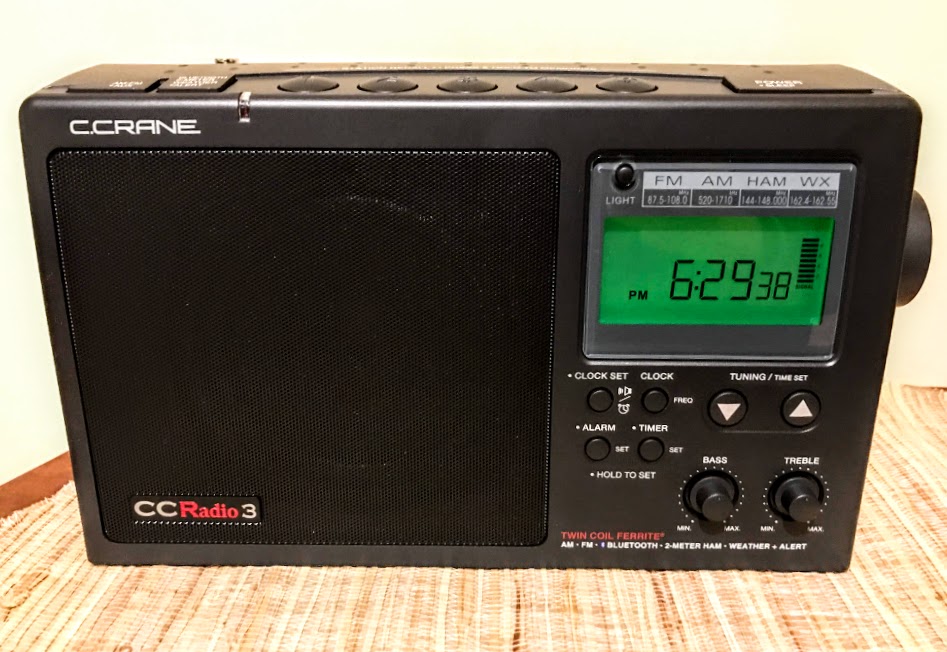 On the most simple degree, you need a radio able to receiving native AM or FM broadcasters, and it might be good to know forward of time which native stations have native information staffs that may broadcast helpful in formation in occasions of disaster. As well as, should you stay within the US or Canada, I completely advocate the power to obtain NOAA climate radio. The flexibility to run off batteries is essential, in case the mains energy is out. As well as, a beneficiant provide of batteries, or a method to recharge batteries is so as. For those who resolve to go together with recharging batteries, you want to take into consideration your choices now, not when the lights exit.
On the most simple degree, you need a radio able to receiving native AM or FM broadcasters, and it might be good to know forward of time which native stations have native information staffs that may broadcast helpful in formation in occasions of disaster. As well as, should you stay within the US or Canada, I completely advocate the power to obtain NOAA climate radio. The flexibility to run off batteries is essential, in case the mains energy is out. As well as, a beneficiant provide of batteries, or a method to recharge batteries is so as. For those who resolve to go together with recharging batteries, you want to take into consideration your choices now, not when the lights exit.
In Rob’s case, throughout Katrina, all the native broadcasters had been worn out. There was a neighborhood low-power FM broadcaster who obtained permission to extend energy to 1,000 watts and was broadcasting the place to get meals and water. There was a New Orleans AM station that was on the air, however all of its protection was “New Orleans-centric.” After a couple of days, some native FM broadcaster, working collectively, cobbled collectively a station that they placed on the air and started broadcasting information. Rob additionally started DXing AM stations at evening to get extra information.
We agreed that shortwave broadcasters weren’t prone to be very helpful most often, however a shortwave radio with the power to listen to ham radio single sideband networks may properly be.
One other potential supply of knowledge are native public company radio transmissions within the VHF and UHF ranges that could possibly be heard with a scanner. However – and this can be a very massive however – that relies upon rather a lot on whether or not your native authorities (first responders, and so forth.) transmissions are encrypted. It’s essential examine a supply like https://www.radioreference.com/db/ to see if Public Security transmissions in your space are encrypted. If they’re, you may be unable to decipher them, it doesn’t matter what gear you personal. Nevertheless, a reasonable analog-only scanner could show very helpful for listening to ham transmissions VHF and UHF (2 meters and 440 primarily) in addition to FRS and GMRS.
In case your native Public Security radio methods should not encrypted, the RR database will give the main points of the radio methods utilized by these businesses, and that in flip will decide the extent of sophistication of scanner that might be required to listen to their transmission.
The Radio Reference database additionally consists of a list of nationwide radio frequencies together with a listing of federal catastrophe frequencies resembling may be utilized by FEMA. As well as, I’ve discovered that the oldsters on the Radio Reference discussion board are beneficiant with their time and experience: https://boards.radioreference.com/ . If all this sounds a bit daunting, there are scanners which have built-in databases of all accessible frequencies and radio methods, and all you want to do is put in your zip code and choose which companies you need to hear. I personal one, they work properly, however they’re costly.
Assuming that the ability is out, your cellphone could or could not work (throughout Hurricane Katrina, some folks discovered that they may not make voice cellphone calls, however textual content messages would undergo).
If the cell telephones should not working, two-way radio could also be helpful to summon assist and collect info. Once more, some analysis in your half is so as. Maybe there are 2-meter or 440 ham repeaters in your space with backup energy, or possibly there’s a strong GMRS repeater system. In that case, get your ham or GMRS license and begin collaborating! (It was his expertise throughout Hurricane Katrina that prompted Rob to get his ham license, and when Hurricane Zeta hit, he was glad he had it.)
FRS bubble-pack radios are good for staying in contact whereas getting across the instant neighborhood. It’s additionally good to have a couple of spares handy to neighbors if the necessity arises. Usually on sale (particularly after Christmas) in multi-packs for lower than $10 every.
Rob notes that nice strides have been made in hardening cellphone towers since Katrina. When Hurricane Harvey clobbered Houston in 2017, the cell web stayed up. Even so, it might be prudent to not rely on it!
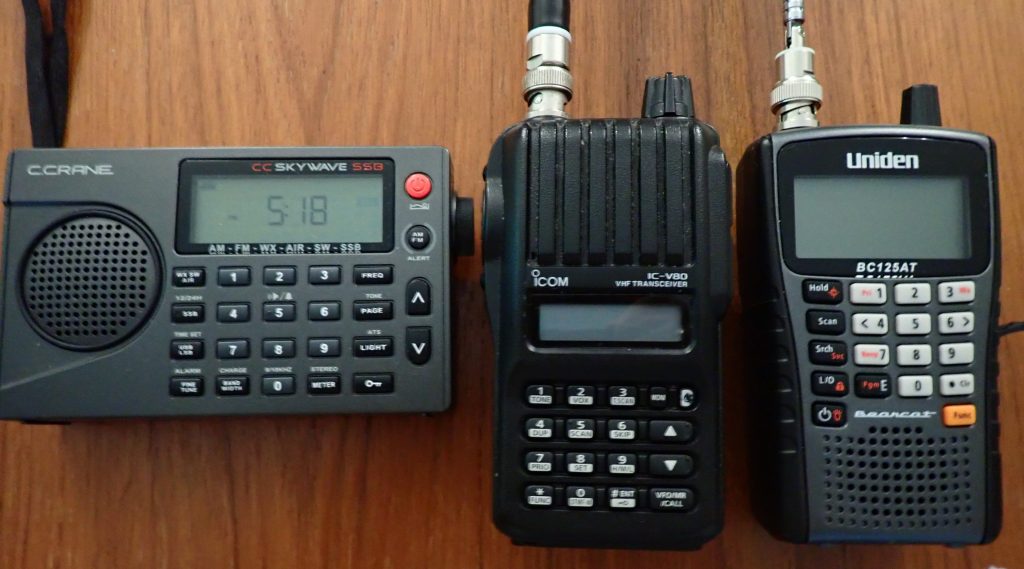 At a naked minimal the power to obtain your native AM and FM broadcasters is crucial, and NOAA climate radio can also be very helpful. On the subsequent step up, relying upon your native state of affairs, a scanner could enable you to to assemble info. As well as, the power to watch ham transmissions may add to your info gathering talents. Lastly, having a ham license and the power to transmit on ham frequencies could also be very precious in a widespread or long-duration emergency.
At a naked minimal the power to obtain your native AM and FM broadcasters is crucial, and NOAA climate radio can also be very helpful. On the subsequent step up, relying upon your native state of affairs, a scanner could enable you to to assemble info. As well as, the power to watch ham transmissions may add to your info gathering talents. Lastly, having a ham license and the power to transmit on ham frequencies could also be very precious in a widespread or long-duration emergency.



